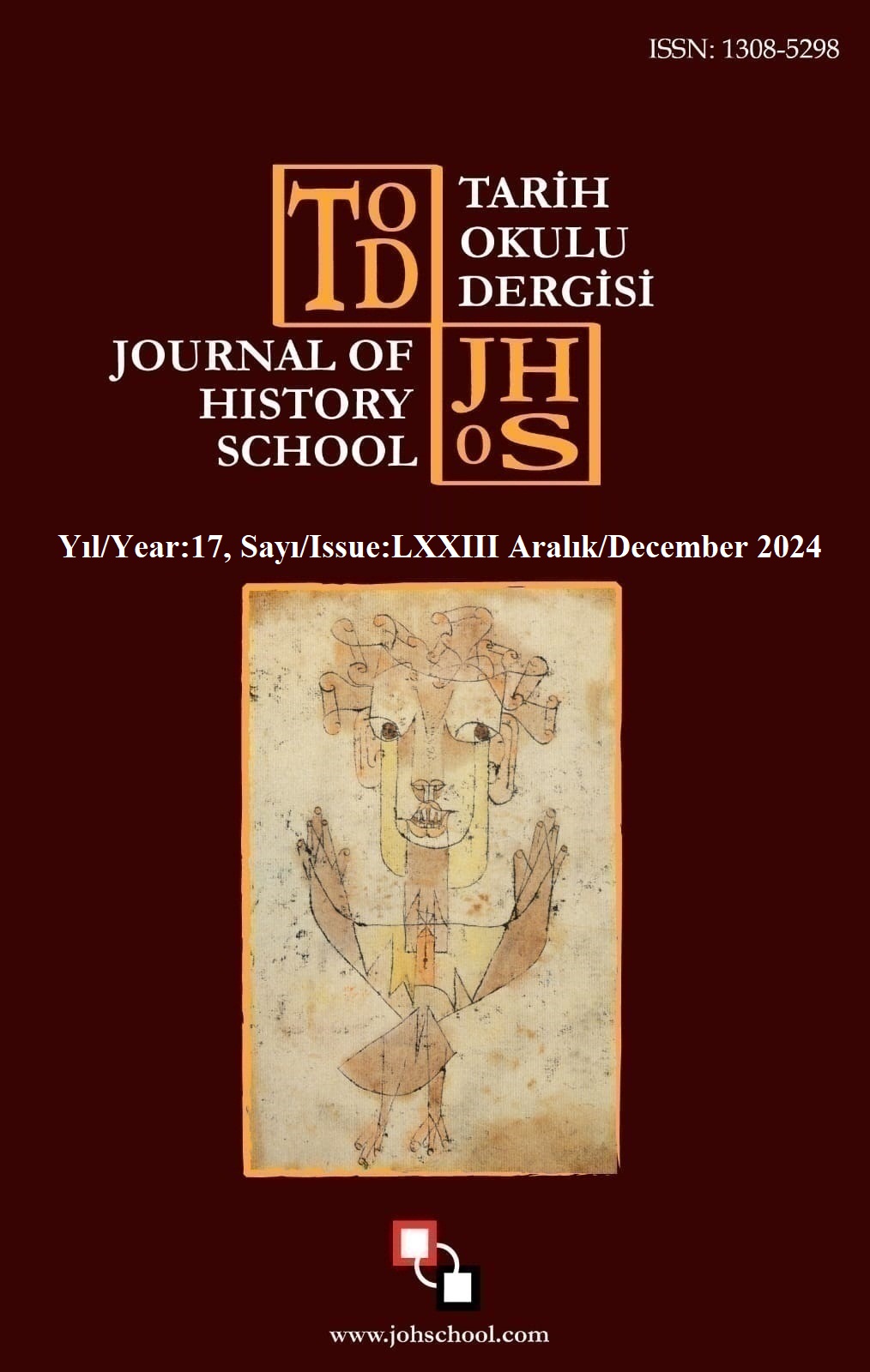DİN EĞİTİMİNDE DİJİTAL OYUNLARDAN YARARLANMAYA İLİŞKİN OLARAK DİN KÜLTÜRÜ VE AHLAK BİLGİSİ ÖĞRETMEN TUTUMLARININ İNCELENMESİ
Author :
Abstract
Araştırmada din eğitiminde dijital oyunlardan yararlanmaya yönelik olarak Din Kültürü ve Ahlak Bilgisi öğretmenlerinin tutumlarının belirlenmesi amaçlanmıştır. Yöntem olarak tarama modelinin seçildiği araştırmanın evrenini, 2022-2023 eğitim-öğretim yılında Elazığ İl’indeki kamu ortaokul ve liselerinde görev yapan Din Kültürü ve Ahlak Bilgisi öğretmenleri oluşturmaktadır. Araştırmanın örneklemi ise evrenden “Basit Seçkisiz Örnekleme” yoluyla belirlenen 220 öğretmenden oluşmaktadır. Araştırmada din eğitiminde dijital oyunlardan yararlanma ile ilgili olarak Din Kültürü ve Ahlak Bilgisi öğretmenlerinin tutumlarını belirlemek amacıyla “Dijital Oyunlardan Yararlanma Ölçeği”nden veri toplama aracı olarak istifade edilmiştir. Belirtilen veri toplama araçları kullanılarak toplanan araştırma verileri, parametrik testler ile analiz edilmiştir. Araştırmada öğretmenlerin dijital oyunlardan yararlanmaya ilişkin tutumlarının çok yüksek olmadığı belirlenmiştir. Ayrıca araştırmada dijital oyunlardan yararlanmaya yönelik öğretmen tutumlarının cinsiyet, yaş, mesleki kıdem ve okul türüne göre anlamlı farklılıklar gösterdiği belirlenmiştir.
Keywords
Abstract
In the study, it was aimed to determine the attitudes of religious culture and moral knowledge teachers regarding the use of digital games in religious education. For this purpose, scanning model was chosen as the method in the research. The universe of the research consists of religious culture and moral knowledge teachers working in public secondary and high schools in the province of Elazig in the 2022-2023 academic year. The sample of the study consists of 220 teachers who were determined from the universe by “Simple Random Sampling”. In the study, the “Utilization of Digital Games Scale” was used as a data collection tool to determine the attitudes of religious culture and ethics teachers regarding the use of digital games in religious education. The research data collected with the specified data collection tools were analyzed using parametric tests. In the study, it was determined that teachers' attitudes towards using digital games were not very high. In addition, it was determined in the study that teachers' attitudes towards using digital games differed significantly according to gender, age, professional seniority and type of school.





